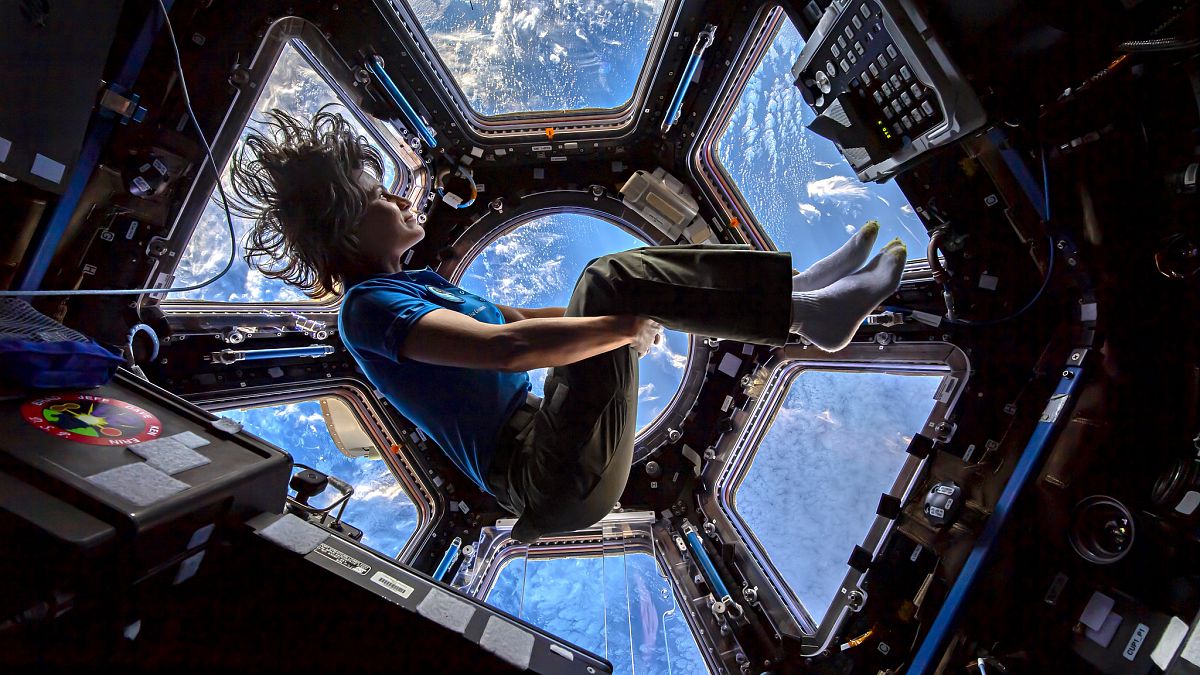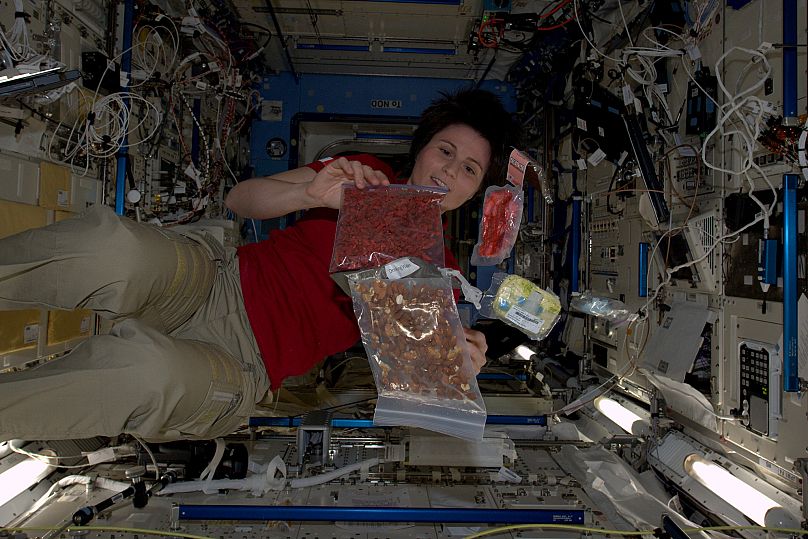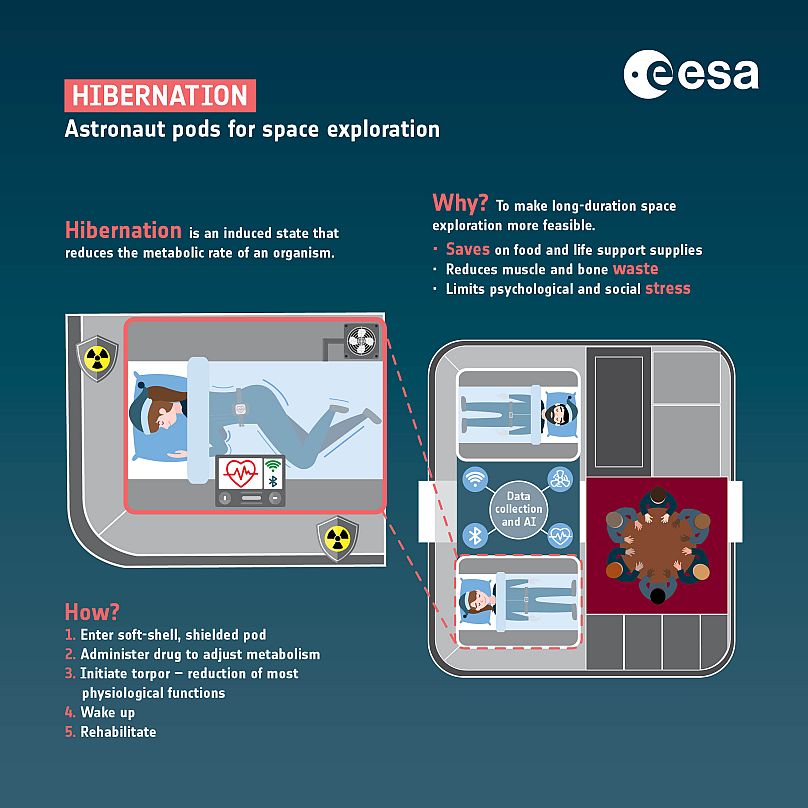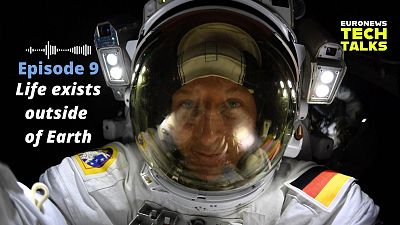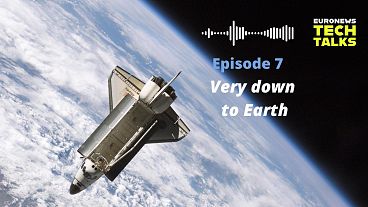Hibernation might be the solution to long, risky, and challenging space missions, the European Space Agency (ESA) says. But how can humans do it?
In Morten Tyldum’s movie Passengers, characters Jim Preston (Chris Pratt) and Aurora Lane (Jennifer Lawrence) are on a 120-year interstellar journey with 5,000 other people.
Their destination: Homestead II, a new world to start their lives anew.
To survive the travel, passengers entered hibernation, each one frozen in their own pod. However, something goes wrong and Jim and Aurora wake up 90 years too early.
But what if we told you that hibernation for space travel is more likely to happen than the romantic story between Jim and Aurora?
"When it comes to hibernation, people often think about either bears or science fiction spots, but what we are doing at ESA is something in between," explained Angelique van Ombergen in the eighth episode of the **Euronews Tech Talks**podcast series.
Van Ombergen is the lead for Life Sciences at the European Space Agency (ESA) and, among other things, she is investigating the possibility of hibernation for long space travels.
Yet, what exactly is hibernation? And why is ESA looking into this process?
The advantages of hibernation
Hibernation is a state in which living organisms slow down their metabolic processes while maintaining essential functions.
In this way, mammals like bears and bats can survive winters, cope with water scarcity, and preserve their energy. Given these perks, ESA and other space agencies are studying whether human bodies can hibernate to survive long space travels.
"It is very much all focused on the psychological advantages. Going to Mars is a long and boring trip, it is like travelling to Spain by car for eight months without being able to stop in a gas station," van Ombergen explained.
"So, hibernation can reduce the psychological stress and boredom of the crew,” she added.
On top of the mental gains, this metabolic state can yield many logistical advantages.
"ESA is looking into a mechanism called torpor. It can be inherently or intrinsically introduced. It reduces the animal's metabolic state and results in the need for less water and less food," van Ombergen clarified.
In the paper 'European Space Agency's hibernation (torpor) strategy for deep space missions: Linking biology to engineering,' ESA research Jennifer Ngo-Anh details that for going to the Red Planet, astronauts would require about 30 kg of food, water air, and other suppliers per day.
Thus, hibernation can significantly cut down on their essential needs.
Additionally, hibernation might have positive impacts on astronauts' health conditions.
"Torpor offers some protective mechanism when it comes to muscles and bones and higher protection from radiation," explained van Ombergen in Euronews Tech Talks.
During long space missions, astronauts are indeed exposed to radiation that increases their risk of developing cancer, cataracts, and problems with the nervous system. However, hibernation would happen in water containers acting as protecting shields for in-orbit astronauts.
A long way to go
Just like in the spaceship of Passengers, astronauts will be hibernated in individual shells.
Once inside these pods, they will get drugs to adjust metabolism, reduce core temperature, and initiate torpor. Once back on Earth, they will wake up and gradually readopt their normal functional metabolism.
But this is merely the theory.
Other space agencies are investigating whether reducing body temperature and later induce metabolism is a more feasible option, while, most research projects are currently focusing on animals.
"The question is: how can we evoke hibernation in species that are not normally doing that? And this is why the research on rats, not naturally hibernating animals, is interesting. Research on bears is also important since their body size is more relatable to ours," said van Ombergen.
In conclusion, bear in mind that hibernating like Jim and Aurora to escape to a new planet is still going to take some time.
But in a few decades, we might witness the first hibernated astronauts returning home from Mars.
